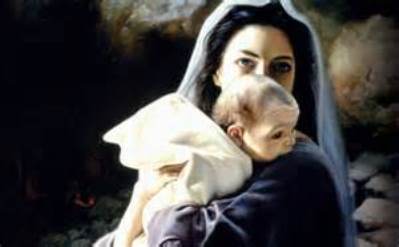The time period for the book of Hosea is stated clearly in verse one. “The word of the Lord that came unto Hosea, the son of Beeri, in the days of Uzziah, Jotham, Ahaz, and Hezekiah, kings of Judah, and in the days of Jeroboam the son of Joash, king of Israel” (Hosea 1:1). The reigns of these kings span approximately 767-722 BC, a period of about 50 or more years.
If one searches for the name Gomer in Strong’s Concordance, he/she will come up with the following references: Genesis 10:2; Genesis 10:3; 1 Chronicles 1:5; 1 Chronicles 1:6; Ezekiel 38:6; Hosea 1:3. Note that all of the references, except for Hosea 1:3 were for men, either fathers or sons. Each and every time, the name means completion. Scholars today have taken the name Gomer in Hosea to signify “completely filled up,” as with sins, but notice that OT:1586 Gomer (go’-mer) comes from OT:1584; completion. That’s it. There is no other meaning or implication. Because Gomer’s life was used by God to represent Israel’s condition, and we can see that Israel was completely filled up with sin and unfaithfulness to God, we must not assume that is the meaning of the woman’s name. Were the men mentioned whose names were Gomer meant to show how evil they were? No. Can we assume her name had anything to do with the fact that the Israelites had been “filled up” with wickedness? It could be a symbolic name, but we are not told that in the scriptures.

Some wonder, since Gomer was a whore, whether her children actually belonged to Hosea. Definitely verse two says “…a wife of whoredoms and children of whoredoms…” However verse three says, “So he went and took Gomer the daughter of Diblaim; which conceived, and bare him a son.” At least we must understand the first child belonged to Hosea, and there is no indication the others did not belong to him too.
So he (Hosea) went and took Gomer the daughter of Diblaim; which conceived, and bare him a son. 4 And the Lord said unto him, Call his name Jezreel; for yet a little while, and I will avenge the blood of Jezreel upon the house of Jehu, and will cause to cease the kingdom of the house of Israel. 5 And it shall come to pass at that day, that I will break the bow of Israel in the valley of Jezreel. 6 And she conceived again, and bare a daughter. And God said unto him, Call her name Loruhamah: for I will no more have mercy upon the house of Israel; but I will utterly take them away. 7 But I will have mercy upon the house of Judah, and will save them by the Lord their God, and will not save them by bow, nor by sword, nor by battle, by horses, nor by horsemen. 8 Now when she had weaned Loruhamah, she conceived, and bare a son. 9 Then said God, Call his name Loammi: for ye are not my people, and I will not be your God (Hosea 1:3-9).
In verse 6, Hosea and Gomer had a daughter they were told to name Loruhamah, which literally means, “not pitied” in Hebrew, because God determined not to have mercy on Israel. He was going to utterly take Israel away because of her wickedness. Loruhamah is only mentioned one more time in verse 9, just before the birth of their third child. Verse 9 tells that Loruhamah was weaned, and that is it. We know nothing else of the daughter or her relationship to her mother. Since Gomer did not take the children with her when she ran away, we can sympathize with all of them. Gomer’s sinful life meant more to her than her children or her husband.

As a wife, how does Gomer compare to the nation of Israel or to the church today in her ingratitude to her husband? The word “departing” is used only once (Hosea 1:2), but it appears to be a key word. God called Hosea to marry a woman of harlotry so, by his testimony, Israel could understand their unfaithfulness. That token would testify to Israel that God had departed from them. The Israelites were God’s own people, people who had rejected Him in favor of idols designed and constructed by men. The Israelites knew that He had delivered them from slavery in Egypt (Exodus 14:8; Num. 33:3; Eze. 20:28), parted the Red Sea so they could cross over on dry ground (Exod. 14:16; Exod. 14:22), and later the Jordan River (Joshua 3:17), provided manna the entire time between their departure from Egypt until they went into the land of Canaan (Exod. 16:15, 31, 33; Deut. 8:3, 16; Joshua 5:12) and given them quail in the wilderness (Exod. 16:13; Numb. 11:31-32; Psa. 105:40) and later sent them to dwell in a land flowing with milk and honey (Exod. 3:8, 17; Exod. 13:15; Exod. 33:3; Deut. 6:3) in houses they did not build (Deut. 6:11; Deut. 19:1) to eat fruits from vineyards they did not plant (Joshua 24:13). God was the faithful “Husband” who had provided for them in wondrous and loving ways, and Gomer was this unfaithful Israel. For a full picture of what actually happened, read the warning given by God in Deuteronomy 8:11-20.
How did Hosea provide for Gomer and their children? Notice in Hosea 2:5 Gomer attributes the things Hosea provided for her as things she was seeking from her lovers. “… for she said, I will go after my lovers, that give me my bread and my water, my wool and my flax, mine oil and my drink.” Gomer credits her lovers with providing the material necessities of her life. In the same way the God of Heaven gave Israel’s material blessings, and when they praised idols and gave the idols credit for those benefits He was defrauded and angry. This is spiritual adultery.
Another way of showing ingratitude to the God of Heaven is when we claim to be the master of our own destiny or claim we have been the ones to do all the things we have done without the help of the Almighty (Deut. 8:17). With that attitude, we are like Gomer and Nebuchadnezzar in Daniel 4:28-32.
All this came upon the king Nebuchadnezzar. 29 At the end of twelve months he walked in the palace of the kingdom of Babylon. 30 The king spake, and said, Is not this great Babylon, that I have built for the house of the kingdom by the might of my power, and for the honour of my majesty? 31 While the word was in the king’s mouth, there fell a voice from heaven, saying, O king Nebuchadnezzar, to thee it is spoken; The kingdom is departed from thee. 32 And they shall drive thee from men, and thy dwelling shall be with the beasts of the field: they shall make thee to eat grass as oxen, and seven times shall pass over thee, until thou know that the most High ruleth in the kingdom of men, and giveth it to whomsoever he will.
Hosea chapter three is one of the shortest chapters in the Bible, but filled with the grief that God and Hosea knew of unfaithfulness. Gomer had tasted respectability in her marriage relationship to Hosea. She had made a covenant of marriage with him, and she had nursed the fruit of her womb. She was granted her husband’s affection and his provisions, but she walked away from all that was good and right and re-entered a world of prostitution.

We see that Gomer was living with a man she called her friend, but the “friend” had sold her at auction. She had left Hosea, who was to her a husband, friend and provider. God tells Hosea to go to the “auction block” and buy her back, and Hosea humbles himself to purchase his own wife for the price of a slave. He feeds her the food of a slave and restrains himself from bringing her home right away—no doubt reminiscent of the cleansing period spoken of in Esther 2:12. He must treat her as a slave, feeding her course meal and giving her time for the cleansing before he can be a husband to her again.
Hosea 4:2 gives a succinct list of behaviors exhibited by the adulterous Israel. It says, “By swearing, and lying, and killing, and stealing, and committing adultery, they break out, and blood toucheth blood.” Sin and crime had completely broken loose and they were doing all these things to the point that one crime was committed so close to another that blood was touching blood.
The Israel of God today is the church, the body of Christ (Gal. 3:29). If 2 Chronicles 7:14 applies to us today as the spiritual Israel of God, it applies to those of us who are the children of Abraham by faith in Jesus, those of us who comprise the body of Christ. “If my people, which are called by my name, shall humble themselves, and pray, and seek my face, and turn from their wicked ways; then will I hear from heaven, and will forgive their sin, and will heal their land.”
James 4:4 fits right into this picture, and it is for you and me today under the new covenant. It calls us what we are when we give our Father’s devotion to the world. “Ye adulterers and adulteresses, know ye not that the friendship of the world is enmity with God? whosoever therefore will be a friend of the world is the enemy of God.”
Can we learn a lesson from both Gomer’s and Israel’s departures? “Only take heed to thyself, and keep thy soul diligently, lest thou forget the things which thine eyes have seen, and lest they depart from thy heart all the days of thy life: but teach them thy sons, and thy sons’ sons” (Deut. 4:9).


This is wonderful. Thank you!
LikeLiked by 1 person
Thanks for stopping by. I hope you will feel free to return anytime.
LikeLike